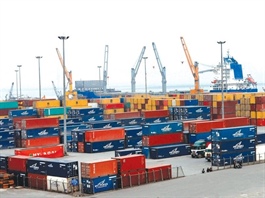Resolution effectiveness on private pharma in Vietnam hinges on implementation
Resolution effectiveness on private pharma in Vietnam hinges on implementation
Within the broader economic vision for Vietnam’s private sector, the pharmaceutical industry, an inherently sensitive and vital realm directly tied to public health and medical security, is undergoing significant transformation to tap into future opportunities.

Ngo Thanh Hai, Lawyer, LNT & Partners |
Implementing the directives of Resolution No.68-NQ/TW, issued last month, opens up a golden opportunity for private pharmaceutical enterprises to reposition themselves, while simultaneously demanding changes in governance, regulatory frameworks, and long-term investment strategy.
The state is now seen as a facilitator rather than a supporter, committed to fostering an equitable, transparent, and stable environment for sustainable and competitive private sector development.
In the context of the pharmaceutical industry, this represents a remarkable policy breakthrough. While private enterprises have long held dominant positions in drug distribution and increasingly in domestic drug production, the resolution creates a policy foundation for deeper investment in areas such as domestic manufacturing, quality standardisation, research and development (R&D), and pharmaceutical exports.
Vietnam’s pharmaceutical industry is experiencing strong growth, driven by rising domestic healthcare demand, favourable policies promoting the use of domestically produced drugs in public hospitals, and a general consumer shift towards high-quality local products. Leading firms like Traphaco, Imexpharm, DHG Pharma, and Pymepharco have invested heavily to build manufacturing facilities that meet international standards, enabling them to explore export opportunities.
Moreover, partnerships with foreign-invested enterprises are expanding. DHG Pharma, for example, has increased its partnership with Taisho of Japan, allowing for advanced technology transfer and modern management. Similarly, TV.Pharm is collaborating with Korean partners in biopharmaceuticals.
However, challenges remain. Vietnam continues to import more than 90 per cent of its pharmaceutical raw materials, exposing it to supply chain disruptions, especially during geopolitical instability or pandemics.
Long-term R&D investment remains limited due to the lack of favourable credit mechanisms and high-risk capital. Administrative procedures, particularly in drug registration, licensing, and hospital bidding, are often lengthy and lack transparency.
Furthermore, there is a shortage of highly qualified personnel, particularly in pharmaceutical technology, biopharmaceutical R&D, and quality control.
Following the issuance of Resolution 68, many private pharmaceutical enterprises have adjusted their development strategies to seize emerging opportunities.
In particular, Imexpharm, a major player in the south, has announced a plan to upgrade its entire non-prescription drug production line to European standards and aims to expand exports to Southeast Asia and the Middle East.
Vimedimex Group is developing a high-tech pharmaceutical industrial park in Hung Yen province, with total investment exceeding $40 million. The park aims to establish a domestic raw material production hub and a pharmaceutical export base.
Traphaco, with a focus in herbal medicine, has set a target for 2030 in which at least half of its products will meet international standards. The company is also scaling up value chains from certified herbal growing zones to modern processing and manufacturing.
Notably, small- and medium-sized enterprises are also seeking investment from private equity and venture capital funds while strengthening partnerships with universities and research institutes to develop speciality drugs for chronic diseases such as cancer, diabetes, and cardiovascular conditions, ailments on the rise in Vietnam.
To effectively realise the goals of Resolution 68 in the pharmaceutical industry, a multipronged policy approach is required. For regulatory reform, it should simplify and streamline drug registration, hospital bidding, and production licensing processes, while introducing a unified digital one-stop administrative system to enhance transparency and reduce costs for enterprises.
In terms of financial support and preferential credit, it should establish a national pharmaceutical innovation fund to provide long-term, low-interest loans for enterprises investing in R&D, raw material production, and international-standard manufacturing facilities.
Regarding personnel development, it requires increasing training quotas for industrial pharmacy and related fields; encouraging enterprise-led training in collaboration with universities and technical institutes to bridge the gap between academic knowledge and practical production needs.
There is also a need to foster innovation ecosystems by developing interdisciplinary pharmaceutical research and innovation centres focusing on biotechnology, AI applications, and nanotechnology. These centres should be publicly commissioned but co-managed with the private sector.
As Resolution 68 accelerates structural reforms and private sector momentum, several major investment trends have begun to take shape. Domestic raw material production investment is shifting towards manufacturing to reduce import dependency and strengthen supply chain autonomy. Enterprises are investing in high-tech drug production technologies, including biopharmaceuticals and personalised medicine powered by AI.
Private Vietnamese pharma firms are also pursuing mergers, acquisitions, and joint ventures to tap into foreign capital, technology, and distribution networks. Growing investment is being channelled into specialised logistics systems, including cold storage and GSP-compliant transportation, to ensure drug quality throughout the supply chain.
Resolution 68 represents not just a political directive, but a strategic lever for repositioning the private pharmaceutical industry as a key pillar in Vietnam’s economic and health system. While the resolution provides an enabling policy framework, its effectiveness will depend heavily on concrete institutional reforms, implementation mechanisms, and feedback loops between government and industry.
Ultimately, it is the forward-looking role of private pharmaceutical enterprises, through innovation, investment, and partnership, that will determine the success of this transition. If leveraged effectively, Vietnam’s pharmaceutical industry can rise to become a regional powerhouse, ensuring national medical security while enhancing the country’s standing in the global healthcare value chain.
- 10:09 24/06/2025























